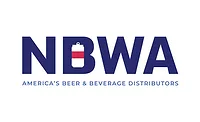Beer distributors address industry’s opportunities at annual NBWA meeting
The National Beer Wholesalers Association (NBWA) addressed strategies for its membership to return to growing beer volume during its annual convention and trade show, which took place from Oct. 16 to 19 in Las Vegas. The trade show featured products and services from 275 exhibitors, including beverages, warehouse technology, fuel management systems, software and promotional products.
The association’s leadership spotlighted NBWA’s achievements in the last year, including federal legislation pursuits, improvement in the quantity and quality of relationships with distributors, and defeat of Costco’s ballot proposal to deregulate alcohol sales in Washington state. The association partnered with several organizations to donate time and money to defeat Costco’s initiative last year, but the retailer has returned with a new proposal that does not include beer, but seeks to allow retailers larger than 10,000 square feet to directly sell wine and spirits. The association continues its actions to defeat the proposal this year.
Outgoing NBWA Chairman of the board Larry Del Papa of Del Papa Distributing Co., Galveston, Texas, passed the role to Steve Lytle of Columbia Distributing, Portland, Ore. Lytle highlighted the challenges that the industry continues to face, such as the continuation of attacks on the three-tier system as well as the challenging economy and declining beer volume.
Craig Purser, president of NBWA, highlighted the importance of brand building for the future of the beer industry.
“It’s the brands that make this industry,” Purser says. “Distributors are in the brand building business. So are brewers, and so are retailers. Maintaining a three-tier system that includes independent distributors is good for everyone. It is good for brewers of all sizes looking for access to market.”
MillerCoors Chief Executive Officer Tom Long discussed how beer’s competition is no longer confined within the industry, but rather coming from the spirits segment, which has consistently taken share from beer during the last few years. Taking a page from beer’s past successes, consumers are responding to spirit brands’ marketing and innovation of new flavors, packaging and repositioning, he noted. In order to compete, brewers have improved their understanding of distributors’ concerns and are supporting the market with investments, Long says.
Although overall beer volume has decreased during the last year, import and craft beer segments both presented positive numbers. At “The Demographics of Imported Beer: Surprises from the 2010 Census and Forecasts on Beer Consumer Migration” session, panelists said that changing demographics in the United States present a favorable opportunity for the import beer segment. Demographic expert Robert Schmidt said analysis of census data shows that in the next decade, the U.S. population will be older and the growth rate will slow with a projected decline in the white, non-Hispanic population through 2050. Import brands have an opportunity, especially those with ties to the growing Hispanic community, panelists noted.
On Oct. 17, Bump Williams of Bump Williams Consulting moderated a panel of craft brewers that included Nikos Ridge of Ninkasi Brewing Co., Bob Sullivan of Boulevard Brewing Co., Rob Tod of Allagash Brewing Co. and Dick Yuengling of Yuengling & Son Co. Williams said the category is benefiting from organic growth as loyal consumers are buying more craft beers on- and off-premise. The brewers addressed what they look for in new wholesale partners and how important those partnerships are to mutual growth.
Joe Thompson of Independent Beverage Group discussed consolidation trends within brewers as well as distributors at “The Evolving Three-Tier System” session. Thompson noted that beer distributors currently are experiencing solid profitability primarily due to beer price increases, diminishment of discounting, improved cost management and synergies from consolidation. However, he emphasized that some of the cost cutbacks have affected customer service and value-added offerings that could have negative long-term effects on relationships.
Attendees also heard from Lee Scott, former president and chief executive officer of Wal-Mart Stores Inc. The former retail executive noted that trends show that consumers are spending less money on material items, which he says can present an opportunity to sell more beer. In response, Wal-Mart is allocating more space to beer as the industry’s assortment grows and consumer purchase behavior shows they are interested in increased variety beyond just package options, he explained. Scott also noted that a proactive attitude from distributors as well as approaching retailers about how they can grow their business, increase sales and drive consumption will help both parties.
NBWA also presented several awards, including the association’s Life Service Award that was presented posthumously to Gary Blinn, former president of Norfolk Beverage Co., Norfolk, Neb. Awarded for political action committee contributions, Boening Brothers Inc. of North Lindenhurst, N.Y., received the Whitey Littlefield Award. The Kenneth Kerr Award, which is presented to an NBWA member who goes above and beyond in promotion of its political action committee, was presented to Greg Lamantia of L & F Distributors LLC, McAllen, Texas. BI
Looking for a reprint of this article?
From high-res PDFs to custom plaques, order your copy today!



